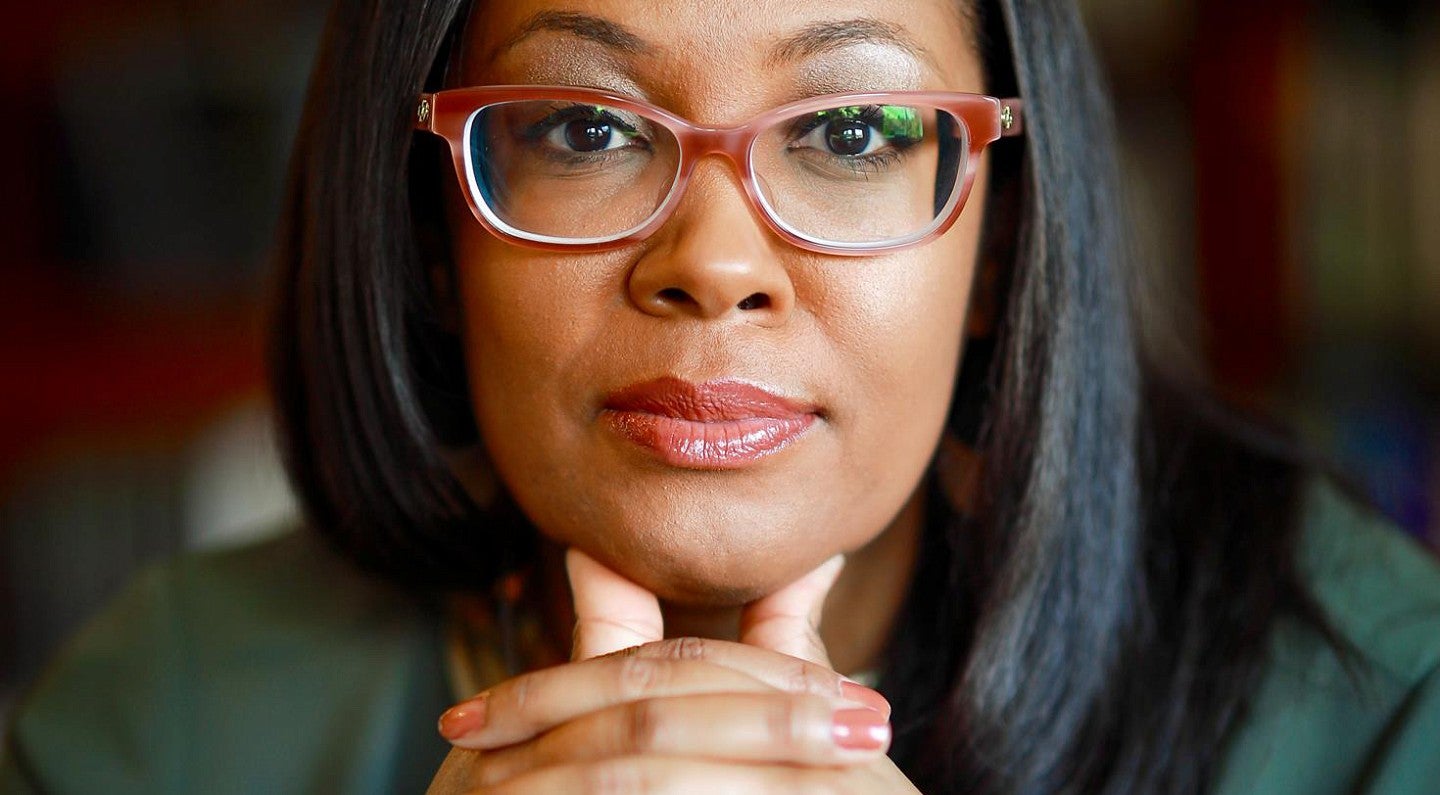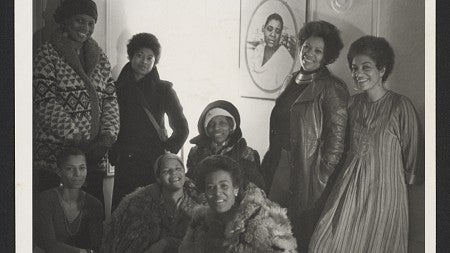
Two Americas
Assistant Vice Provost’s young adult novel on systemic racism comes at a pivotal moment
By Sharleen Nelson • October 7, 2023
5 min read
When Kim Johnson started writing a young adult novel in 2014 about the death penalty and systemic racism, she thought it might be a narrow read that wouldn’t garner a lot of interest. “People don’t like to talk about the death penalty, let alone our criminal justice system or any kind of critique of police or even any critique of communities that have had racism embedded in their entire system,” Johnson says.
That all changed in 2020.
“These issues have always been timely,” she says, “but we are in a moment.”
Historically, pivotal moments like the murder of Emmett Till and Rosa Parks refusing to give up her seat on the bus have forced requisite change to the forefront.
The moment that awakened public interest in 2020 came amid a global pandemic, increased political division, and the brutal killing of George Floyd and other Black citizens at the hands of police, sparking Black Lives Matter protests across the country.
“All of these moments of time seem to have led to this awakening, of people paying attention to these things that have always been there but now it’s in the media, it’s in the news, it’s on television, and it’s in books,” says Johnson, an alumna and advising administrator for the University of Oregon.
Whether it was her experiences as a precocious child growing up Black in predominantly white Eugene, or being a student activist at the UO, or helping young people as a student advisor, advocate, and mentor, each shaped This is My America, a book Johnson says she “had to write.”
Released in July, the book follows 17-year-old Tracy Beaumont, who is determined to keep her father and brother from becoming statistics. Facing long-embedded bigotry in her hometown and discrimination in the criminal justice system, she races against time to exonerate her father, who is sitting on death row for a crime he didn’t commit, and to save her big brother, who unexpectedly finds himself facing a similar fate.
As an undergraduate, Johnson, BS ’01 (ethnic studies), shared traits of her book’s strong female protagonist. A self-proclaimed “doer,” she pursued leadership roles in the youth arm of the local NAACP chapter, was a codirector of the Black Student Union, and joined a Black sorority.
“The traits for people who are involved in service organizations are people who question and fight for truth, for justice,” she says. “I wanted to embody a protagonist who had a lot of those characteristics.”
Although her mother encouraged her to choose what she considered a “practical” major she had no interest in, she followed a liberal arts approach after being inspired by a first-year ethnic studies class and a visit to campus from philosopher-author-activist Cornell West. Among the first group of students to graduate with the ethnic studies major in 2001, Johnson says it opened doors for her to get involved in Black advocacy and activism.
“I was very vocal about the lack of Black faculty that were on campus and the things that I wanted to see,” she says. “But I think you can love a place and critique a place at the same time. I loved my experience at the UO.”
Growing up, Johnson says weekly visits to the library with her mom and sisters were a happy staple of her childhood. She loved mysteries; Nancy Drew books were “her jam.” But in high school, Johnson stopped reading for pleasure, she says, because “there weren’t many characters that were Black. They were all these amazing stories about other people that didn’t look like me or have friends like me.”
This lack of representation informed Johnson’s interest in writing books designed to help young readers not only identify with the characters, but also engage with real-life issues. “It’s a way to grip a reader, especially a young adult reader, because it is so fast-paced and page-turning,” she says, “but using that as a mechanism to actually tackle complex, difficult issues that people have a hard time having conversations about.”
Ultimately, Johnson would like to see This is My America and more literature by Black authors incorporated into classroom curriculums to educate students about the Black experience. Combining her passion for activism, advocacy, and writing with a career in education, she is perhaps perfectly positioned to build a larger platform for Black issues.
As assistant vice provost for advising, Johnson oversees advising initiatives for student success and advising supervisors in the Division of Undergraduate Education and Student Success units: the Office of Academic Advising, PathwayOregon, TRIO Student Support Services, and Tykeson College and Career Advising. Johnson is also director for the Center for Multicultural Academic Excellence in the Division of Equity and Inclusion.
These programs provide support ranging from academic and career advising to “wraparound services” for first-generation, Pell Grant, students needing additional support, and underrepresented students. Johnson received the Officers of Administration Leadership and Service Award in 2016.
“I love my work here at UO,” Johnson says. “My job is to help students be successful, to pursue the majors that they’re interested in, and to thrive in those experiences.”
Johnson is the UO graduate advisor for her old sorority, Alpha Kappa Alpha, the first historically African-American Greek letter sorority; she was also an inaugural board member for the Black Alumni Network.
“My commitment to UO is not only trying to find good experiences for students,” she says, “but to also unify and connect Black alumni to help build a better future for the young students coming in.”
Sharleen Nelson, BS ’06 (journalism: magazine, news/editorial), is a staff writer for University Communications.




